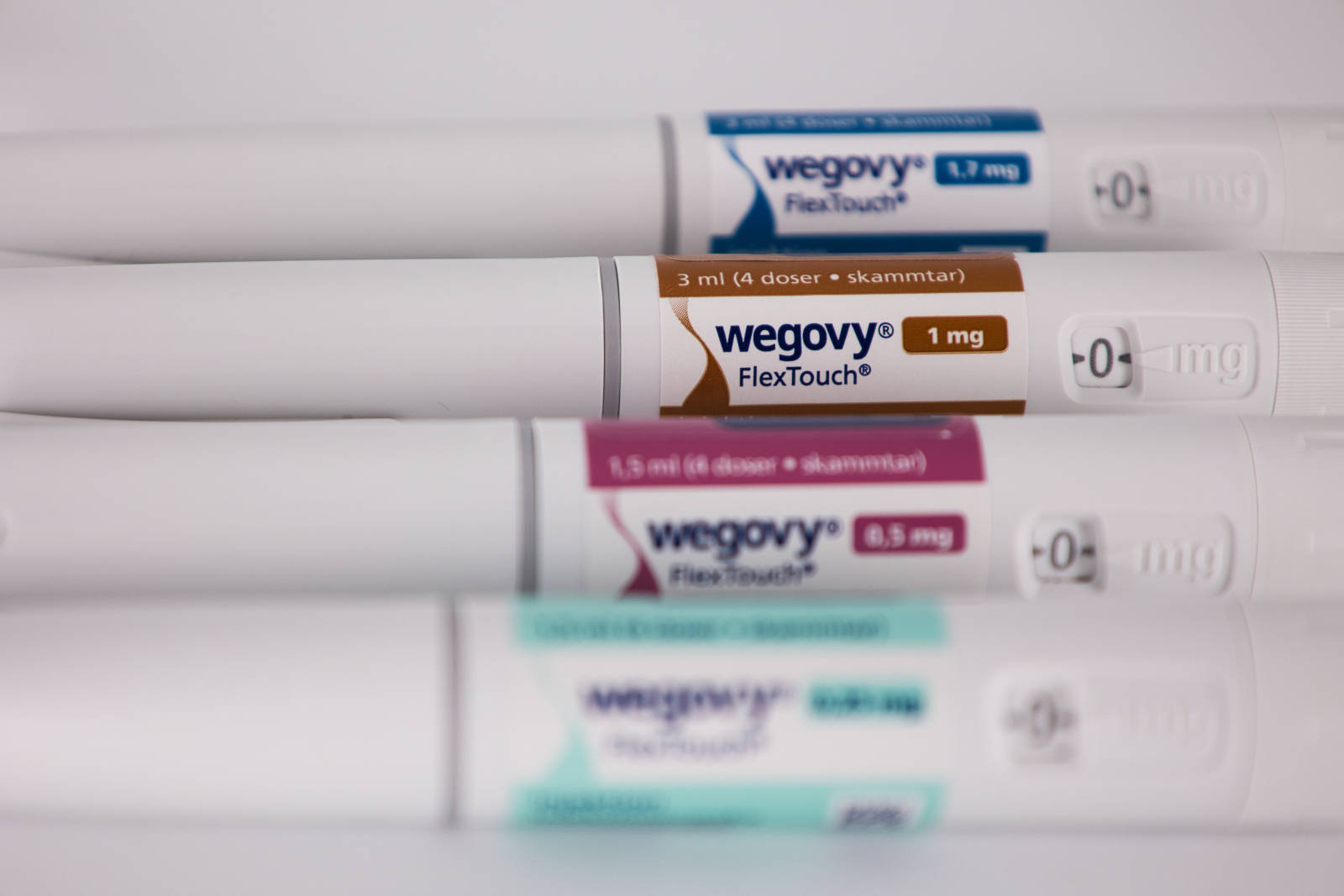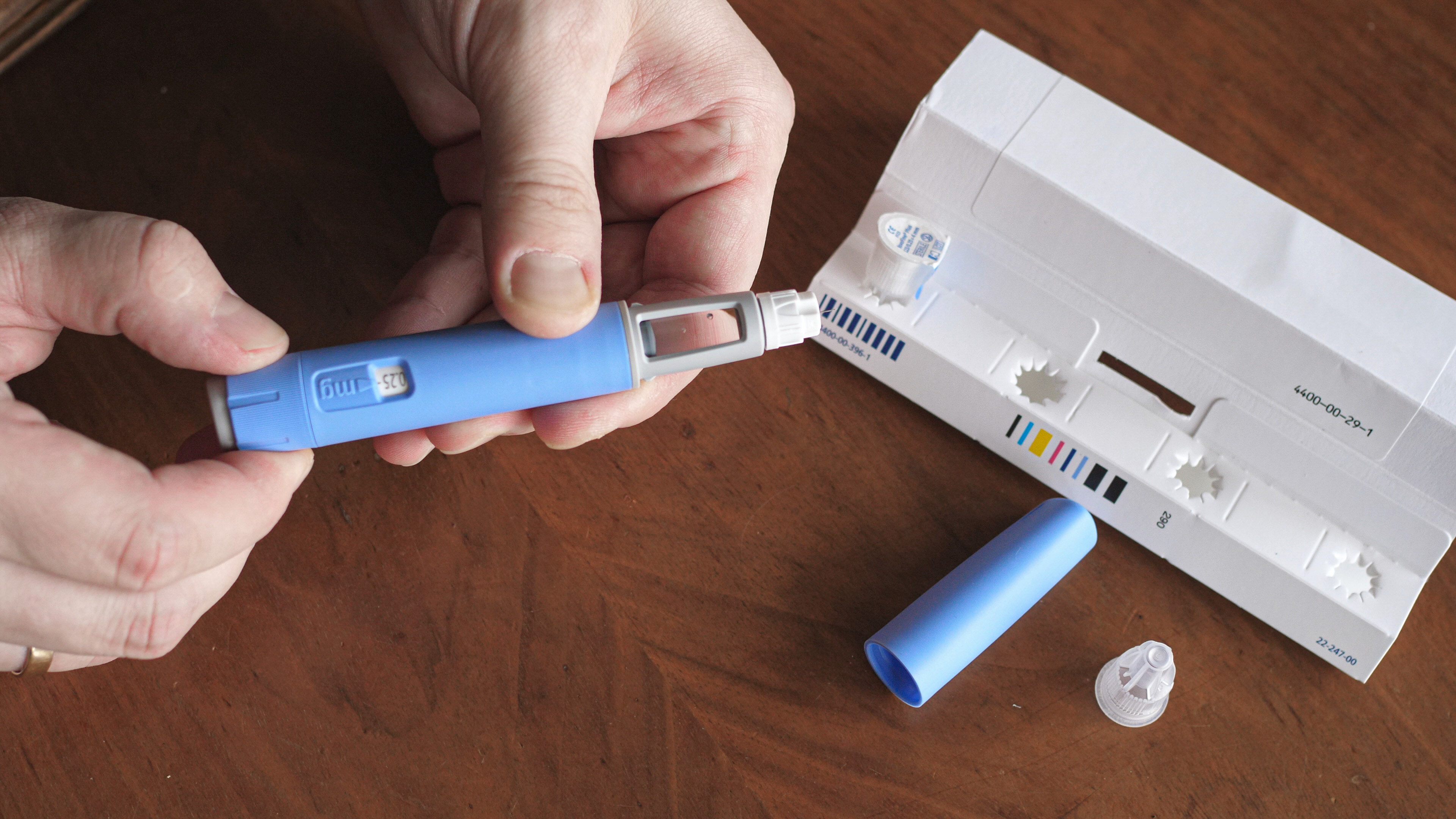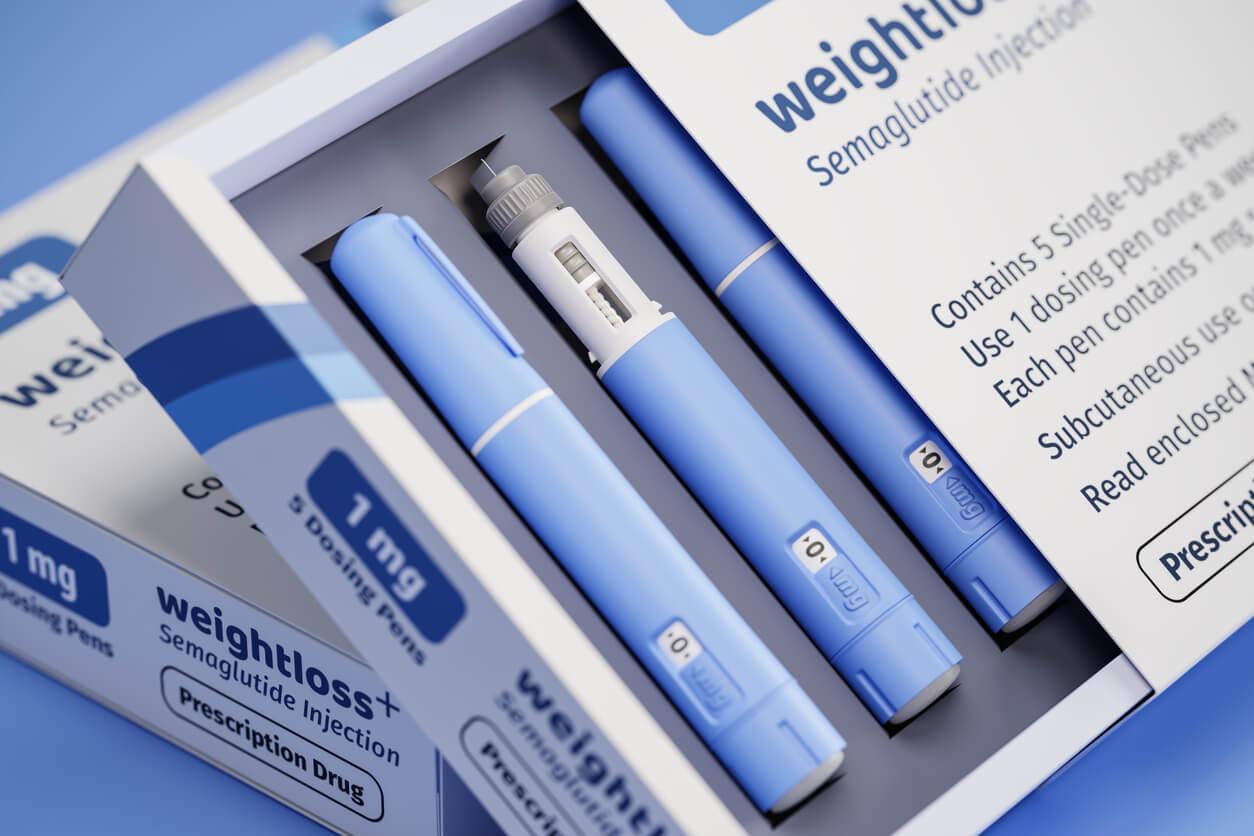10 Ozempic Alternatives and Different Price Points
Key Takeaways
- Ozempic is a GLP-1 medication that is approved for type 2 diabetes treatment and is frequently prescribed off-label for weight loss, but increasing demand and high prices are making it harder to access
- GLP-1s such as Rybelsus, Mounjaro, Trulicity, Victoza, Bydureon BCise and Byetta are all approved for type 2 diabetes treatment
- Wegovy pen, Wegovy pill, Saxenda and Zepbound are additional GLP-1s that are approved for weight loss
Ozempic (semaglutide) is one of the most popular prescription medications in the United States. It belongs to a class of drugs known as GLP-1 receptor agonists, which work by mimicking a hormone in your body that affects blood sugar levels, appetite and digestion.
Ozempic was approved for the treatment of type 2 diabetes in 2017. In 2025, it was also approved to treat chronic kidney disease in patients with Type 2 diabetes. Even though it’s not FDA-approved for weight loss, Ozempic has also become recognized for its effectiveness as an anti-obesity drug. In clinical trials, people on Ozempic lost about 8-10 pounds, and also helped reduce the risk of heart attack and other cardiovascular events. About a quarter of Ozempic prescriptions are prescribed to people without diabetes.
Given its effectiveness, it’s no surprise that prescriptions for Ozempic have increased by 857% since 2019. However, the rising demand for Ozempic, coupled with manufacturer shortages, has made harder to access the medication. And if your insurance doesn’t cover Ozempic, the out-of-pocket monthly cost ($349 a month for self-pay patients) may be out of the question.
As a result, many people are exploring Ozempic alternatives. To make your search easier, we’ve detailed every GLP-1 medication on the market below – along with a comparison of cost, dosing amount, and how it varies from Ozempic.
Ozempic alternatives for type 2 diabetes
As of 2026, six other GLP-1 medications are approved for the treatment of type 2 diabetes: Rybelsus (semaglutide), Mounjaro (tirzepatide), Trulicity (dulaglutide), Victoza (liraglutide), Bydureon BCise (exenatide) and Byetta (exenatide).
Like Ozempic, many of these medications may also help reduce the risk of weight-related health conditions, like heart disease. Read on for more info on each medication, along with a comparison chart on cost, dosing and health benefits:
1. Rybelsus (semaglutide)
Rybelsus (semaglutide) is an oral medication that helps patients with type 2 diabetes manage their blood glucose levels. It has the same active ingredient (semaglutide) as Ozempic and Wegovy, but is prescribed as a tablet to take by mouth instead of a subcutaneous injection.
Rybelsus is taken once a day and is available in 3mg, 7 mg, and 14 mg tablets. Rybelsus isn’t approved for weight loss, but patients in clinical trials lost an average of 5 pounds over 6 months on the lowest dose.
2. Mounjaro (tirzepatide)
Mounjaro (tirzepatide) belongs to a class of medications called GLP-1/GIP agonists. These medications work very similarly to GLP-1 medications like Ozempic, except that they also mimic a gut hormone called glucose-dependent insulinotropic polypeptide (GIP). Mounjaro is prescribed as a weekly injection.
Patients typically start off taking 2.5 mg injection weekly, and then increase to 5 mg after a month. Even though it’s FDA-approved to treat type 2 diabetes, patients in clinical trials also lost around 20% of their weight after a year of taking Mounjaro along with lifestyle changes.
3. Trulicity (dulaglutide)
Trulicity (dulaglutide) is an injectable GLP-1 receptor agonist used to improve blood sugar control in adults with type 2 diabetes. It can also lower your risk of stroke, heart attack and other cardiovascular events.
While it works similarly to Ozempic, Truclitiy contains a different active ingredient (dulaglutide). Typical dosing for Trulicity starts at 0.75 mg once a week and then increases to 1.5 mg, 3 mg or 4.5 mg as recommended by a healthcare provider. At the highest dose, clinical trial patients lost about 10 pounds over a 9-month period - so while it’s not approved for weight loss, it may still have some weight-related benefits.
4. Victoza (liraglutide)
Victoza (liraglutide) is another GLP-1 medication that helps to treat type 2 diabetes. Unlike Ozempic (semaglutide), which is taken weekly, Victoza contains liraglutide and is taken daily. Dosing for Victoza can range from 0.6 mg to 1.8 mg per day, depending on your provider’s medical advice.
5. Bydureon BCise (exenatide)
Bydureon BCise is an extended-release injectable medication for the treatment of type 2 diabetes. Exenatide, the active ingredient in Bydureon BCise, was the first GLP-1 medication to be approved by the FDA. It comes in the form of a 2 mg injection that is injected once a week.
6. Byetta (exenatide)
Byetta is an injectable GLP-1 medication with the same active ingredient as Bydureon BCise. Unlike Ozempic and other GLP-1 medications which are usually taken once a day or once a week, Byetta is injected twice daily before morning and evening meals to help control blood sugar spikes.
Dosing typically starts at 5 mcg twice per day. A 200-person study found that participants taking 5 mcg of Byetta lost about 6 lbs after 6 months, while patients on a 10 mcg dose lost around 7 pounds.
| Brand Name | Drug Class | Dosage Form | Self-Pay Price | FDA-Approved For | Additional Health Benefits |
|---|---|---|---|---|---|
| Rybelsus (semaglutide) | GLP-1 | Once-daily oral tablet | $968/mo | Type 2 diabetes | May cause a small amount of weight loss |
| Mounjaro (tirzepatide) | GLP-1 | Weekly injection | $1,070/mo | Type 2 diabetes | May cause a small amount of weight loss |
| Trulicity (dulaglutide) | GLP-1 | Weekly injection | $978/mo | Type 2 diabetes | May aid with weight loss, kidney health and heart health |
| Victoza (liraglutide) | GLP-1 | Daily injection | $815/mo | Type 2 diabetes | May aid with weight loss, kidney health and heart health |
| Bydureon BCise (exenatide) | GLP-1 | Weekly injection | $977/mo | Type 2 diabetes | May cause a small amount of weight loss |
| Byetta (exenatide) | GLP-1 | Twice-daily injection | $1,006/mo | Type 2 diabetes | May cause a small amount of weight loss |
Ozempic alternatives for weight loss
While Ozempic is not approved as a weight loss medication, there are four GLP-1 medications that are approved specifically for chronic weight management: Wegovy pen (semaglutide), Wegovy pill (semaglutide), Saxenda (liraglutide) and Zepbound (tirzepatide). Here’s how these weight loss drugs stack up against each other:
7. Wegovy pen (semaglutide)
Wegovy (semaglutide) injections have the same active ingredient (semaglutide) as Ozempic, and also comes in the form of a weekly injection pen. However, Wegovy injections are formulated at a higher dose in order to be more effective as a weight loss medication. The standard Wegovy injection dosage is 2.4 mg per week, while Ozempic’s dosage is a maximum of 2 mg per week.
8. Wegovy pill (semaglutide)
The Wegovy pill (semaglutide) is the first-ever FDA-approved oral GLP-1 for weight loss. It has the same active ingredient (semaglutide) as Ozempic but comes in the form of an oral tablet and are taken once daily, instead of once a week.
Wegovy pills comes in 4 doses (1.5 mg, 4 mg, 9 mg, 25 mg) and have been found to help patients with obesity or overweight with weight-related conditions to lose about 14% of their body weight on average in a year.
9. Zepbound (tirzepatide)
Zepbound (tirzepatide) is a higher-dose version of Mounjaro, but is prescribed for weight loss instead of type 2 diabetes. It can also treat obstructive sleep apnea (OSA) in people with obesity. Like Ozempic, Zepbound is injected once weekly. Unlike Ozempic (which is a GLP-1 receptor agonist), Zepbound targets both GLP-1 and GIP receptors.
Typical dosing for Zepbound starts at 2.5 mg and may increase depending on how the patient responds to the medication. At the highest recommended dose (15mg per week), patients in clinical trials lost an average of 48 lbs in 72 weeks.
10. Saxenda (liraglutide)
Saxenda (liraglutide) is a GLP-1 medication that is prescribed for weight loss. It has the same active ingredient (liraglutide) as the diabetes drug Victoza, but at a higher dose - the maximum dose for Saxenda is 3 mg per day, while the maximum dose for Victoza is just 1.8 mg per day. Patients on Saxenda lost between 5-10% of their body weight during a 56-week clinical trial.
| Brand Name | Drug Class | Dosage Form | List Price | FDA-Approved For | Additional Health Benefits |
|---|---|---|---|---|---|
| Wegovy pen (semaglutide) | GLP-1 | Weekly injection | $199/mo for first two months, then $349/mo after. | Weight loss | May aid with heart health |
| Wegovy pill (semaglutide) | GLP-1 | Once-daily oral tablet | $149/mo for lower doses (1.5mg, 4mg) or $299/mo for higher doses (9mg, 25mg) | Weight loss | May aid with heart health |
| Saxenda (liraglutide) | GLP-1 | Daily injection | $1,349/mo | Weight loss | N/A |
| Zepbound (tirzepatide) | GLP-1 | Weekly injection | $1,060/mo, or as low as $299/mo in vial form | Weight loss, obstructive sleep apnea (OSA) for adults with obesity | N/A |
How Sesame can help
Sesame offers an affordable and comprehensive online weight loss program to help you get started on your weight loss journey. Success by Sesame is a month-to-month subscription that includes a video consultation with a weight loss doctor or specialist of your choice, access to prescriptions for weight loss medication if appropriate, unlimited messaging with your provider, ongoing support, and more.
Maintaining a healthy weight can lead to significant health benefits, including a lower risk of heart disease, improved mobility, better sleep, and enhanced overall well-being. Get started on your weight loss journey today. Note that all prescriptions are at the discretion of your healthcare provider.







